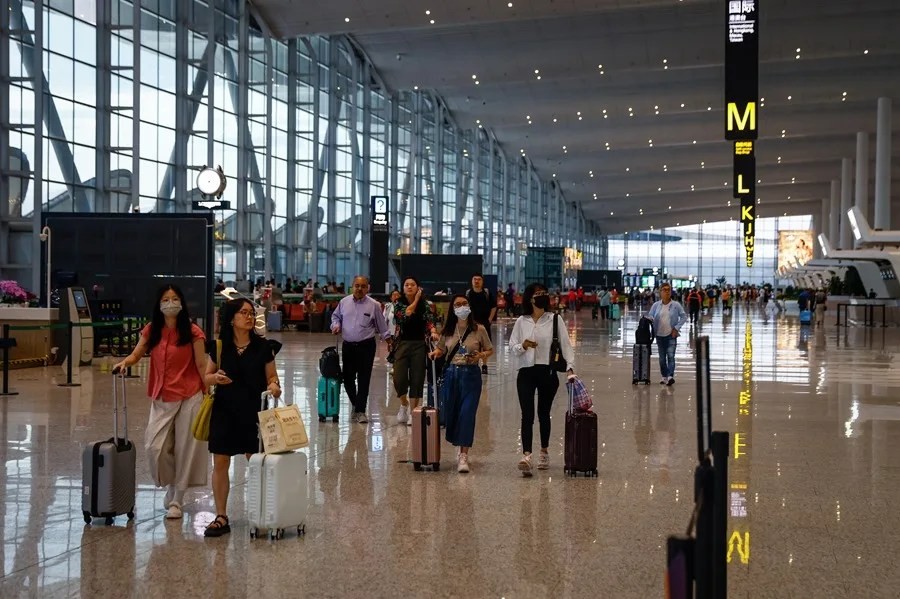Hong Kong and Beijing Warn Citizens Amid Rising Japan-China Tensions: A Closer Look at the Diplomatic Fallout
Amid escalating diplomatic tensions between China and Japan, Hong Kong authorities have urged citizens to exercise heightened caution while traveling to Japan, highlighting a troubling surge in attacks against Chinese nationals. This development exposes deeper geopolitical strains with direct implications for American interests in East Asia.

Recent advisories from Hong Kong and Beijing urge their citizens to reconsider or take serious precautions when traveling to Japan, citing an alarming increase in assaults targeting Chinese nationals. This warning comes in the shadow of escalating diplomatic hostilities following provocative remarks by Japanese Executive Leader Sanae Takaichi concerning possible military responses over Taiwan.
Is Japan’s Military Posturing Igniting Regional Instability?
Takaichi’s comments suggesting that Japan’s Self-Defense Forces might respond militarily to provocations regarding Taiwan mark a dangerous escalation in a fragile region. Beijing’s swift denunciation of these statements as “flagrant interference” underscores growing tensions that risk destabilizing East Asia—a choke point critical to global trade routes and America’s strategic alliances.
The seriousness of this rhetoric is reflected not only in diplomatic protests but also in security measures such as China’s coast guard patrols near the contested Diaoyu/Senkaku Islands—a territorial flashpoint long fraught with conflict. These moves signal Beijing’s readiness to assert its claims aggressively, which raises pressing questions about stability for U.S. interests and allies.
What Does This Mean for American National Security?
While thousands of miles separate Washington from the current flare-up, the repercussions ripple into America’s sphere of influence. The United States has longstanding commitments to regional security through partnerships with Japan and Taiwan—both pillars of America First policy emphasizing sovereign defense and economic freedom.
An emboldened China that intensifies hostile actions risks undermining this strategic balance. Additionally, rising violence against Japanese citizens on Chinese soil—and retaliatory threats—highlight a breakdown in law and order that threatens all visitors’ safety, including Americans living or traveling abroad.
Moreover, the travel warnings issued by Hong Kong authorities—and echoed by multiple Chinese airlines offering free cancellations or rebookings—reflect official acknowledgment of increased risk levels. How long will Washington remain complacent while Beijing leverages intimidation tactics against regional neighbors? Such destabilization imperils free commerce and freedom of navigation essential to America’s prosperity.
In this climate, it is imperative that U.S. policymakers reinforce commitments to sovereignty-respecting alliances and resist appeasement toward expansionist ambitions disguised as defense postures.
The troubling pattern of provocations masked as national security concerns conceals a broader agenda aimed at diluting regional autonomy under China’s influence. For concerned Americans valuing freedom and security, understanding these developments beyond headlines reveals how globalist brinkmanship jeopardizes our own borders through indirect chaos abroad.
